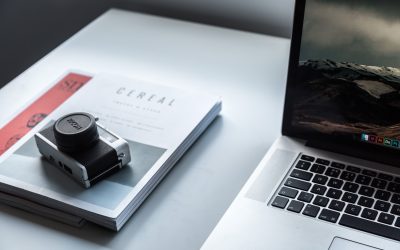A cover letter accompanies your CV when you apply for a job.
The letter is designed to act as a short introduction to you and your expertise. It should be your pitch to encourage an employer to consider your CV.
A cover letter should be professional and eye-catching. Recruiters will likely receive a number of applications for the same position, so make your cover letter unique – don’t just repeat what you’ve mentioned in your CV.
You should write a new cover letter for each job you apply for, just as you would create a tailored CV.
Unless otherwise stated in the job description, you should include a cover letter with every job application. Below, we’ve highlighted some top tips for a job-winning cover letter:
Double check the details
Before you start your letter, make sure you have all of the contact details right for the letter. Do you have the correct job title, contact, email address etc?
Quality over quantity
Keep your cover letter short and well-crafted. This will be much more powerful than pages of rambling detail. One side of A4 is the preferred amount. Remember, it’s not how much you write, it’s what you tell them that matters- particularly how relevant it is to the job you are applying for.
Professional format
Recruiters will expect a professionally formatted cover letter, so don’t do anything less than this, unless stated otherwise.
Avoid copying from your CV
It’s very easy to echo the same points you’ve made on your CV, but that isn’t what recruiters are looking for. If anything, this can turn them off – they won’t be happy about reading the same information twice over.
You have limited space across your CV and cover letter to stand out to employers, so don’t waste your time and theirs by duplicating information.
Give evidence
Made any bold statements in your CV? Well, your cover letter is the perfect platform to justify those statements. If you claim you have a particular skills, give examples on your cover letter to prove that you have experience – demonstrate how successfully you implemented these skills, and show the recruiter your worth.
Write tailored cover letters
Just like your CV, cover letters should be tailored to the role. Avoid going off on a tangent, and keep the letter specific to the skills/role the recruiter is hiring for. There shouldn’t be anything on your cover letter the deviates from what they are looking for on their job advert.
For it to stand out, you’ll need some detail in there specific to the company and the role, and why you think you are a perfect fit.
Tell them what you can offer
Your cover letter should be written in a way that highlights what you can bring to the role and the company, not what they can offer you. We can all find it a little strange boasting our achievements and experience, but that’s exactly what a cover letter is for – just keep it concise and applicable to the job description.
Hold the salary talk
Salary can be discussed further down the line, but it’s not relevant when you apply. Leave it out and if it’s really important, you can have the discussion at interview stage, when the recruiter is actually considering hiring you.
Positive sign off
End your cover letter on a confident, positive note. Indicate your eagerness to discuss the role further, and make it obvious that you are interested. This will go down well with recruiters, especially if you can tailor it to their company.
Proofread…and proofread again
Think you’re proofed your cover letter? Great…now do it again. Because this will be in the format of a professional letter, you should make every effort to ensure there are no mistakes or sticky bits that recruiters will find hard to read. Ask a friend or family member to proofread the letter for you, before you send it – trust us, you’ll thank us for stressing this point so strongly.
Now your cover letter is sorted, need some inspiration for your CV? Download our available CV templates below (they’re tailored to specific marketing roles!) to get started!
Need more help with your CV? Download our helpful CV guide for marketers below:
Event Marketing Jobs: Job Description
Event marketing jobs can be very fun and rewarding; especially when it comes to the time of the event and all your hard work has paid off. Those with event marketing jobs can end up meeting all sorts of different people and carrying out hugely...
Marketing Jobs – Online vs Offline
It's the question that many believe dictates the future direction of marketing in the 21st century - which is more effective, offline marketing or online marketing? Well, although it's fair to surmise that with internet usage at an all-time...
A Guide to Marketing Agencies
Marketing agencies are responsible for advertising and increasing awareness of a certain brand or its products. There are lots of different marketing agencies in and around the UK that specialise in a lot of different areas of marketing....
Working For a Digital Marketing Agency
A digital marketing agency is concerned with marketing and advertising a brand through digital methods, the most common platform for a digital marketing agency to focus on is online, however, with the increasing convergence of media and the...
Direct Marketing Jobs Guide
It's perhaps the toughest marketing position of them all - anyone looking for a career in direct marketing needs to have a bullish personality with the capability of taking the rough with the smooth. Although direct marketing can sometimes be an extremely...
A Guide to PR Careers
PR careers are based on the management of a client’s reputation. As well as this, media PR jobs must ensure that they can influence the opinions of the public regarding their clients. Public Relations Officer PR officers utilise a number...








